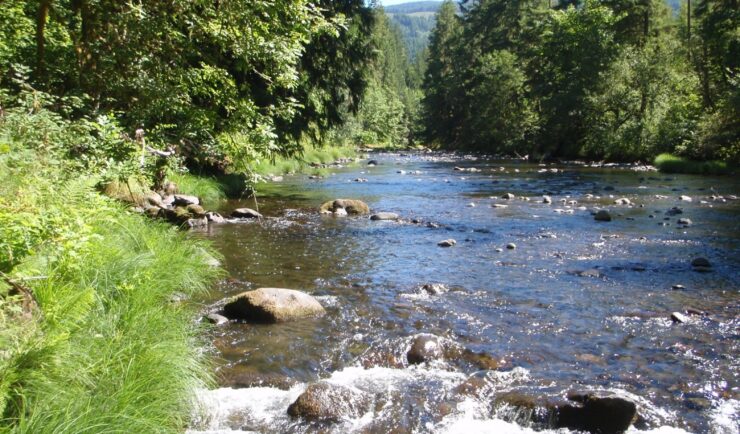
Since 1985 we’ve supported the National Institute of Environmental Health Sciences and have provided more than 1,600 quality assurance audit reports that the client has used to assess the quality of toxicology studies they sponsor.
Over the last year our employee owners reviewed several studies involving per- and polyfluorinated substances (PFAS) compounds, or “forever chemicals”, that have been in the news. In addition, our team has reviewed several draft manuscripts that their researchers are preparing for publication in scientific journals. This new assignment illustrates their confidence in our team to determine the accuracy and completeness of a toxicology research paper.
See More CSS Insights

Developing a Stream Assessment Protocol
CSS has been a significant contributor to the development and implementation of the Oregon Stream Function Assessment Method (SFAM) for more than 10 years. SFAM is a key component of the Oregon Stream Mitigation Program administered by the Oregon Department of State Lands. The mitigation program is designed to address damage to aquatic resources caused…

Preparing and Delivering Samples for Travel to the International Space Station
CSS employee owners on contract with NASA delivered six newly prepared Solidification Using a Baffle in Sealed Ampoules (SUBSA)—a high temperature furnace with temperature and timing control for melting samples to create different materials and alloys—samples for the NG-23 launch, which took place on September 14, 2025. On this mission, samples are being delivered for…

Team Recognized for Critical Roles and Exceptional Work
Congratulations to CSS employee owners supporting The National Institute of Environmental Health Sciences (NIEHS) National Toxicology Program Quality Assurance. The team is recognized for precision in identifying inconsistencies and safeguarding data integrity across large-scale toxicology studies. This team’s work directly supports regulatory agencies in protecting human health and the environment through rigorous toxicological data review.
